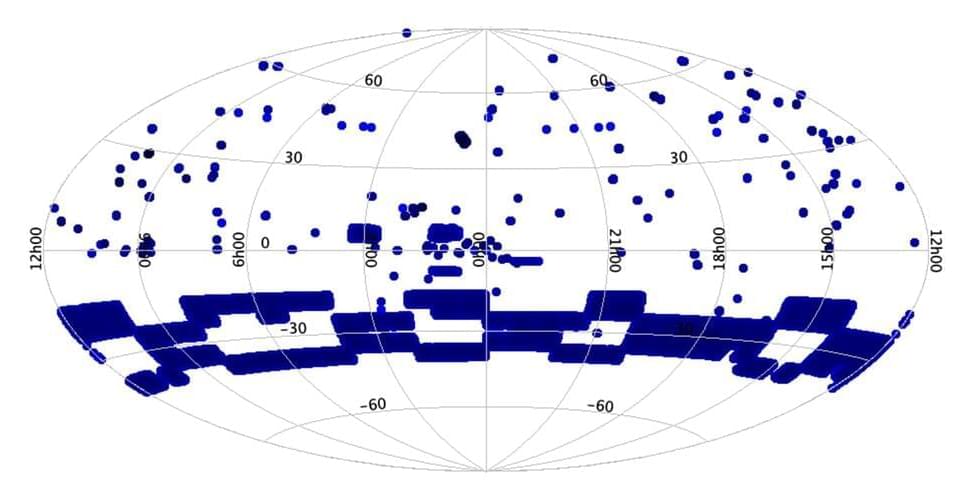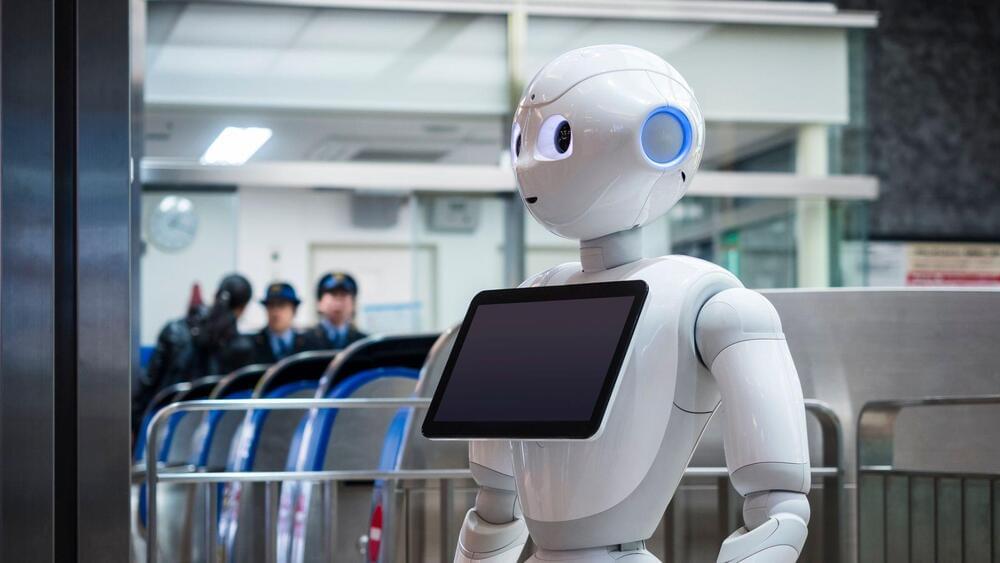The award-winning, state-of-the-art research facility is now officially ready to host scientific exploration, collaboration and innovation.



January 8, 2024, Mountain View, CA — In a groundbreaking cosmic quest, the SETI Institute’s Commensal Open-Source Multimode Interferometer Cluster (COSMIC) at the Karl G. Jansky Very Large Array (VLA) is expanding the search for extraterrestrial intelligence (SETI). This cutting-edge technology is not a distinct telescope; it’s a detector. COSMIC searches for extraterrestrial signals and paves the way for future science using a copy of the raw data from the telescope’s observations. At the heart of COSMIC’s mission is pursuing the age-old question: Are we alone in the universe? Project scientist Dr. Chenoa Tremblay and the team detailed the project in a paper published in The Astronomical Journal.
What sets COSMIC apart is its adaptability to the future. The system is designed for future upgrades, ensuring it remains at the forefront of cosmic exploration. With the potential to expand its capabilities, COSMIC could soon cover more stars, explore new frequencies, and enhance our understanding of the vast cosmic tapestry. It is important to note that COSMIC’s capabilities go beyond searching for extraterrestrial intelligence. Future upgrades could unlock new explorations, from finding fast radio bursts with a submillisecond temporal resolution to studying spectral line science and axionic dark matter.
“COSMIC introduces modern Ethernet-based digital architecture on the VLA, allowing for a test bed for future technologies as we move into the next generation era,” said Tremblay. “Currently, the focus is on creating one of the largest surveys for technological signals, with over 500,000 sources observed in the first six months. However, the flexibility of the design allows for a wide range of other scientific opportunities, such as studying fast radio burst pulse structures and searching for axion dark matter candidates. We hope to open opportunities for other scientists to use our high time (nanoseconds) or our high spectral resolution (sub-Hz) to complete their research. It is an exciting time for increasing the capabilities of this historic telescope.”


Department of Energy user facility helps probe questions from changes in the structure of nuclei to nuclear reactions that shape the Universe.
The Facility for Rare Isotope Beams (FRIB) enables discoveries in the science of atomic nuclei, their role in the cosmos, and the fundamental symmetries of nature. This accelerator facility uses beams of short-lived nuclei not available elsewhere. Results from FRIB address questions such as the limits of the nuclear chart, the origin of the elements, and the reason for why there is more matter than antimatter in our Universe.
In FRIB’s first year, its measurements tackled the changes in the structure of the shortest-lived nuclei, exotic decay modes, nuclear reactions that affect cosmic events such as X-ray bursts, and processes in the crusts of neutron stars.

Samsung Display showcased the future of display technology at the Consumer Electronics Show (CES) 2024 in Las Vegas. Under the theme ‘All-in Innovative Tech: Paving the New Journey,’ the company demonstrated innovative technologies that promise to revolutionize various industries.
Following the success of the Galaxy Flip and Fold lineups, Samsung Display unveiled the In&Out Flip, a foldable device with a flip-phone design that folds 360 degrees in and out.
Unlike conventional foldable phones, the In&Out Flip boasts a single display that can be used even when folded. The company said the sleek and thin device underwent rigorous durability testing to prove its resilience in extreme conditions.
MSU researcher Carolina de Aguiar Ferreira is changing the way we fight cancer. She is precisely targeting cancer cells with diagnostics and therapies using radioisotopes produced by FRIB, the world’s most powerful heavy-ion accelerator.
Using breakthrough tools to target cancer led Carolina de Aguiar Ferreira to MSU, where she found a community of scientists who discover better together.

Google introduces AutoRT, SARA-RT, and RT-Trajectory.
Imagine having a personal helper robot that can tidy up your home or cook a tasty meal with just a simple request. Sounds futuristic, right? But for robots to understand and tackle these everyday tasks, they need a deep understanding of the world around them.
Google’s recent announcement brings us closer to this futuristic reality. They’ve unveiled a trio of advancements—AutoRT, SARA-RT, and RT-Trajectory—that push the boundaries of robotics research. These breakthroughs aim to help robots make faster decisions, comprehend their surroundings better, and move around more efficiently.
Figure 101’s skills were developed through a 10-hour training period, with it gaining the knowledge simply by observing humans perform the task.
Significant progress
Figure first unveiled its initial humanoid creation in March 2023, the development of which took place in 12 months. This innovative robot, dubbed as the ‘world’s first commercially-viable autonomous humanoid robot’, integrates the agility of the human form with advanced AI, enabling it to execute a diverse array of tasks across multiple sectors, including manufacturing, logistics, warehousing, and retail, according to the firm.
This morning in breaking news, Brett Adcock CEO of Figure Robotics, dropped a mind-blowing demo showing that their Figure 1 robot can now do end-to-end AI training. This demo of the bot now able to make coffee is just one of many applications that they are promising the bot can do. Robotics expert Dr. Scott Walter does a comparison with Tesla Bot and Google’s Mobile ALOHA Scott Walter is an Aerospace Engineer with a Ph.D. in Mechanical Engineering and has co-founded two robotics companies Follow Scott on X @GoingBallistic5 Get Free TESLA Milestone Tables M.

A spectacular design for a space elevator, with the goal of efficiently transporting passengers into outer space, has been awarded a $11,000 prize.
As the BBC reports, British architect Jordan William Hughes won the prize for space architecture and innovation from the Jacques Rougerie Foundation in Paris.
His concept, dubbed Ascensio, connects an ocean-based ship to a structure in Earth’s orbit via a cable-like structure. The ship is designed to keep up with the spaceport by moving around the ocean.